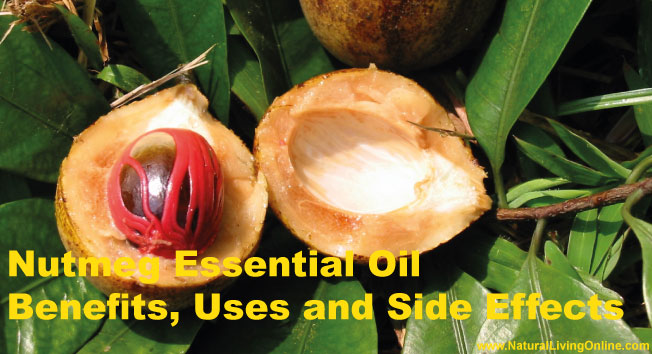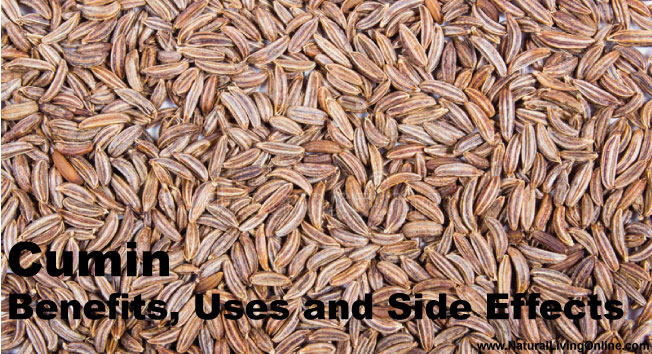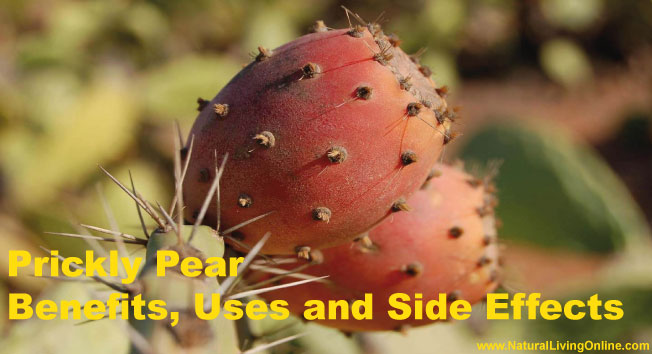Nutmeg essential oil is made by steam distilling the dried seed of the nutmeg tree. It has a strong, spicy aroma and is used in aromatherapy for its warming, stimulating effects. Nutmeg oil is thought to have several health benefits, including reducing inflammation, relieving pain, and improving digestion. It may also have anti-cancer properties. However, nutmeg essential oil should be used with caution, as it can be toxic in large amounts.
Essential Oil Profile / Monograph
Botanical Name: Myristica fragrans
Common Names: Nutmeg, muscat
Plant Family: Myristicaceae
Countries of origin: Indonesia, Malaysia
Extraction Method: Steam distillation
Parts Used: Dried seed
Essential Oil smell: Spicy, warm, woody
Essential Oil Color: pale yellow to amber
Viscosity: Thin
Perfumery Note: Middle
Strength of Aroma: Strong
Blends Well With: Clove, ginger, orange, black pepper
Therapeutic Properties: Analgesic, anti-inflammatory, antispasmodic, carminative, digestive, diuretic, emmenagogue, expectorant, stimulant
Uses: Arthritis, flatulence, indigestion, muscle aches and pains, nausea
Contraindications: Pregnancy, breastfeeding, children under the age of 12, hypertension, epilepsy. Nutmeg essential oil should be used with caution as it can be toxic in large amounts.
Side Effects: Nutmeg essential oil can be toxic in large amounts. Symptoms of toxicity include dizziness, nausea, vomiting, and seizures. If ingested, nutmeg essential oil can cause death.
Chemical Constituents with percentages:
1,8-cineole (eucalyptol) – 24.19%
terpinen-4-ol – 7.63%
alpha-terpineol – 5.99%
betaphoradrenaline – 0.98%
(Z)-beta-ocimene – 0.98%
There are no therapeutic standards for nutmeg essential oil. The above mentioned chemical constituents with percentages are for typical nutmeg essential oil.
The main chemical components of nutmeg essential oil are 1,8-cineole (eucalyptol), terpinen-4-ol, and alpha-terpineol. These three chemicals make up 38.8% of the oil.
1,8-cineole (eucalyptol) is a colorless liquid with a strong minty odor. It is used as a flavoring agent and has antimicrobial, anti-inflammatory, and expectorant properties.
Terpinen-4-ol is a clear, colorless liquid with a strong floral odor. It is used as a fragrance ingredient and has antimicrobial, anti-inflammatory, and expectorant properties.
Alpha-terpineol is a clear, colorless liquid with a sweet, floral odor. It is used as a fragrance ingredient and has antimicrobial, anti-inflammatory, and expectorant properties.
Betaphoradrenaline is a white solid with a bitter taste. It is used as a vasoconstrictor and has bronchodilator properties.
(Z)-beta-ocimene is a clear, colorless liquid with a sweet, floral odor. It is used as a fragrance ingredient and has anti-inflammatory properties.
What is Nutmeg?
The nutmeg tree is an evergreen that produces two popular spices: nutmeg and mace. Nutmeg is the seed of the tree, while mace is the dried, reddish-brown aril (fruit) surrounding the seed. Both have a slightly sweet, musky flavor and are used in sweet and savory dishes. Nutmeg tree is native to the Spice Islands of Indonesia but is now grown in many tropical countries, including India, Sri Lanka, and Grenada. It has been used medicinally for centuries in traditional Chinese and Ayurvedic medicine.
Benefits
Nutmeg essential oil is a popular natural remedy with a range of potential health benefits. Here’s a look at some of the potential health benefits of nutmeg essential oil:
Reducing inflammation and pain: Nutmeg essential oil contains anti-inflammatory compounds called monoterpenes, like pinene, sabinene, and terpineol which can help to reduce inflammation throughout the body. When applied topically, nutmeg oil can help to soothe pain and reduce swelling in joints and muscles. It increases blood circulation which helps to reduce the menstrual pain and headaches.
Powerful Antioxidant: Nutmeg essential oil is a powerful antioxidant that can help to protect cells from damage caused by free radicals. Free radicals are unstable molecules that can cause cell damage and lead to chronic diseases like cancer. Nutmeg contains compounds like carvacrol and thymol, which have been shown to scavenge free radicals and protect cells from damage.
Enhances Sexual Function: Nutmeg extract including essential oil increases the sex drive in both male and female. Though there is no research done on humans but an animal study shows that group which was given nutmeg extract in their diet had higher sex drive for extended duration compared to the control group. In ancient times Nutmeg was also used to treat sexual disorders like impotency, premature ejaculation etc.
Improving digestion: Nutmeg extract may help to improve digestion by stimulating the production of digestive enzymes.
Anti-cancer properties: Nutmeg contains compounds like limonene, myristicin, and eugenol, which have been shown to have anti-cancer effects. One study showed that myristicin was able to inhibit the growth of lung cancer cells. Another study found that eugenol was able to induce cell death in colon cancer cells.
Improves Brain Function: Nutmeg essential oil has been shown to improve cognitive function and memory. One study showed that it was able to improve memory and cognitive function in rats (5). Another study found that it was able to improve memory in people with Alzheimer’s disease (6). It contains compounds like myristicin and elemicin, which have been shown to increase cerebral blood flow and improve cognitive function.
Stimulates hair growth: Nutmeg essential oil has been shown to stimulate hair growth. One study showed that it was able to increase hair growth in rats (7). It is thought to work by increasing circulation to the scalp.
Reduces stress: Nutmeg essential oil has been shown to reduce stress and anxiety. It contains compounds like myristicin and elemicin, which have been shown to have sedative and anxiolytic effects.
Uses
Nutmeg oil can be used in a variety of ways. Here are some of the most common uses:
Topical use: You can apply nutmeg oil directly to your skin. It’s important to do a patch test before using it, as some people may be allergic to it. If you’re not allergic, you can add a few drops of nutmeg oil to a carrier oil and massage it into your skin.
Aromatherapy: You can use nutmeg oil in an essential oil diffuser or vaporizer. Inhaling the vapors may help to improve your mood and relieve stress.
Ingesting: You can add a 1-2 drops of nutmeg oil to water, juice, or tea for its therapeutic benefits. It’s important to speak to your doctor before taking nutmeg oil internally, as it can be toxic in large amounts, and it may also interact with other drugs.
Historical use
The nutmeg tree is native to the Moluccas, or Spice Islands, of Indonesia. Nutmeg has been used as a spice and medicine since ancient times. It was first mentioned in a Chinese medical text from the 1st century AD. In the Middle Ages, nutmeg was used to treat a variety of ailments, including digestive problems, melancholy, and bad breath.
Today, nutmeg is used as a spice in many dishes, and it’s also available in supplements. Nutmeg extract and oil are said to offer a variety of health benefits, including improved digestion, cognitive function, hair growth, and stress relief. However, most of these claims are based on animal studies or traditional use, and more research is needed to confirm the effects of nutmeg on humans.
Nutmeg essential oil benefits for skin
Nourishes the skin: Nutmeg essential oil is rich in nutrients like vitamin E, which helps to nourish the skin and keep it healthy.
Reduces inflammation: Nutmeg essential oil has anti-inflammatory properties that can help to reduce swelling and redness. It’s also been shown to be effective in treating acne.
Reduces wrinkles: Nutmeg essential oil can help to reduce the appearance of wrinkles and fine lines. This is due to its antioxidant content, which helps to protect the skin from damage.
Nutmeg essential oil benefits for hair
Stimulates hair growth: Nutmeg essential oil has been shown to stimulate hair growth. This is thought to be due to its ability to increase circulation to the scalp.
Prevents hair loss: Nutmeg essential oil may also help to prevent hair loss. This is likely due to its anti-inflammatory properties, which can help to reduce scalp inflammation.
Aromatherapy
The pleasant aroma of nutmeg essential oil can help to improve your mood and relieve stress. When used in aromatherapy, it’s thought to be helpful for easing anxiety, depression, and insomnia.
Diffuser blends for aromatherapy with Nutmeg Essential Oil
1. Nutmeg and Orange: This citrusy combination is uplifting and energizing. It’s perfect for use in the morning to help you start your day.
2. Nutmeg and Lavender: This relaxing blend is perfect for use at night before bed. It can help to ease anxiety and promote restful sleep.
3. Nutmeg and Peppermint: This refreshing blend is invigorating and energizing. It’s perfect for use during the day to help you stay focused and alert.
4. Nutmeg and Rosemary: This stimulating blend is ideal for use during the day. It can help to improve concentration and boost energy levels.
5. Nutmeg and Cinnamon: This warm and spicy blend is perfect for use in the winter months. It can help to improve circulation and ease muscle pain.
6. Nutmeg and Ginger: This spicy and warming blend is perfect for use during the colder months. It can help to improve digestion and relieve nausea.
7. Nutmeg and Clove: This spicy and warming blend is perfect for use during the colder months. It can help to improve circulation and ease muscle pain.
DIY recipes using Nutmeg Essential Oil
1. Nutmeg Soap: This homemade soap recipe is perfect for use in the winter months. It’s made with nourishing ingredients like olive oil and coconut oil, and it’s scented with a warm blend of nutmeg and cinnamon essential oils.
2. Nutmeg Sugar Scrub: This sugar scrub is perfect for use in the winter months. It’s made with nourishing ingredients like olive oil and coconut oil, and it’s scented with a warm blend of nutmeg and cinnamon essential oils.
3. Nutmeg Massage Oil: This massage oil is perfect for use in the winter months. It’s made with nourishing ingredients like olive oil and coconut oil, and it’s scented with a warm blend of nutmeg and cinnamon essential oils.
4. Nutmeg Lip Balm: This homemade lip balm is perfect for use in the winter months. It’s made with nourishing ingredients like beeswax and coconut oil, and it’s scented with a warm blend of nutmeg and cinnamon essential oils.
5. Nutmeg Candle: This homemade candle is perfect for use in the winter months. It’s made with beeswax and coconut oil, and it’s scented with a warm blend of nutmeg and cinnamon essential oils.
Frequently Asked Questions
Who should not use Nutmeg oil?
Nutmeg oil should not be used by pregnant or breastfeeding women, as it can stimulate uterine contractions. It should also be avoided by people with high blood pressure, as it can raise blood pressure levels. If you have any other health conditions, please consult your healthcare provider before using nutmeg oil.
Does Nutmeg oil interact with any medicine?
Nutmeg oil can interact with certain medications, such as blood thinners and blood pressure medications. If you are taking any medication, please consult your healthcare provider before using nutmeg oil.
Can you use Nutmeg oil everyday?
Yes, you can use nutmeg oil every day. However, it is best to start with a small amount and increase gradually as needed. Excessive use of nutmeg may lead to side effects like hallucination, dizziness and vomiting.
Is it OK to breathe in Nutmeg oil?
Yes, it is safe to inhale nutmeg oil. It is used in aromatherapy for its calming and relaxant effects.
How to use Nutmeg oil for intimacy?
Add a few drops of nutmeg oil to your favorite carrier oil and massage into the lower back and abdomen. This will help to relax the muscles and increase blood flow to the area, which can improve sexual arousal.
Does Nutmeg oil raise blood pressure?
Nutmeg oil can raise blood pressure levels. If you have high blood pressure, please consult your healthcare provider before using nutmeg oil.
Can I directly use Nutmeg oil on skin?
You should use diluted nutmeg essential oil on your skin. To make a diluted solution, add 3-5 drops of nutmeg oil to 1 ounce of carrier oil like jojoba oil or sweet almond oil.
Is Nutmeg oil good for hair?
Yes, nutmeg oil is good for hair. It can help to promote hair growth and prevent hair loss. It can also help to treat dandruff and scalp conditions like psoriasis. To use, add a few drops of nutmeg oil to your shampoo or conditioner, or massage the diluted nutmeg oil into the scalp. Leave in for 3-5 minutes before rinsing out.
What are the side effects of Nutmeg oil?
Possible side effects of nutmeg oil include upset stomach, diarrhea, dizziness, nausea, rapid heartbeat, headache, psychotic symptoms (in large doses). Nutmeg oil is safe for most people when used in small amounts. However, it can be toxic in large doses, and it may interact with certain medications. Therefore, it’s important to speak to your doctor before using nutmeg oil, especially if you’re pregnant, breastfeeding, or taking any medications. Nutmeg oil is also not recommended for children, as it can be toxic in large doses. If you’re thinking about using nutmeg oil for its health benefits, speak to your doctor first to see if it’s right for you.
References:
- An experimental study of sexual function improving effect of Myristica fragrans Houtt. (nutmeg)
- Cytotoxic and anti-tumor activities of lignans from the seeds of Vietnamese nutmeg Myristica fragrans
- Evaluation of Antioxidant and Anticancer Activity of Myristica fragrans Houtt
This website does not provide medical advice.
All information provided on this website, and on associated social media networks, including but not limited to texts, images, and numbers are for general information purpose only. It is not intended as medical advice and it does not include all possible precautions, side effects, or interactions that may occur. Neither NaturalLivingOnline.com nor its author/founder take responsibility for how you use this information. Statements contained on NaturalLivingOnline.com have not been evaluated by the FDA. You should conduct thorough research via multiple sources and consult your physician or qualified doctor before using any essential oil or herbal remedy. Information on NaturalLivingOnline.com must not be relied upon for medical, legal, financial or other decisions.













